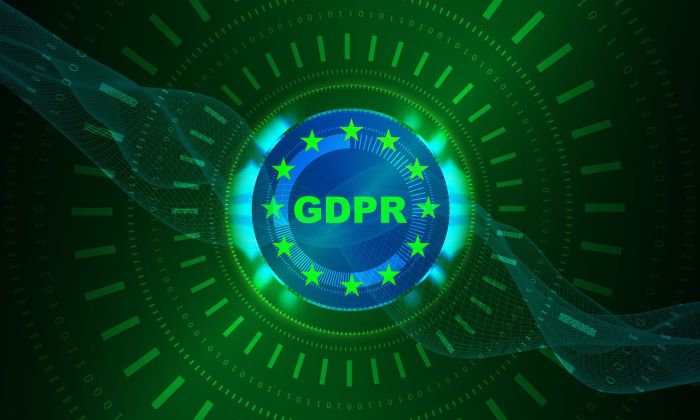
The Impact of GDPR on SaaS Providers

The General Data Protection Regulation (GDPR) is a comprehensive data protection law that took effect on May 25, 2018. It was designed to harmonize data protection regulations across the European Union (EU) and strengthen individuals' rights regarding their personal data.
The GDPR has profoundly impacted SaaS providers by introducing stricter regulations for handling customer data. These providers are now required to enhance their data protection measures, ensuring the security and privacy of customer data.
They must also take on increased accountability for the personal information they process and comply with consent management requirements. SaaS companies need to ensure compliance with enhanced data protection obligations, establish clear consent mechanisms, address individual rights requests promptly, and implement robust incident response plans.
This article will explore the key implications of GDPR on SaaS providers and how they can ensure compliance with these regulations.
Understanding GDPR ComplianceCompliance with the General Data Protection Regulation (GDPR) is paramount for SaaS providers. It involves understanding and adhering to key principles such as lawful and transparent data processing and implementing effective consent management practices aligned with individuals' rights.
SaaS providers must also recognize their obligations as controllers or processors under the regulation, ensuring they meet the required security, record-keeping, and transparency standards. Moreover, it is essential to acknowledge the extraterritorial reach of GDPR, which extends its applicability beyond EU borders.
Factors that impact SaaS development cost mostinclude scalability and performance requirements, security measures, compliance and regulatory requirements, user interface and user experience (UI/UX), integration with third-party services, testing and quality assurance, and maintenance and support.
So compliance is an important factor and by prioritizing GDPR compliance, SaaS providers can establish trust with customers and demonstrate their commitment to safeguarding personal data privacy in today's increasingly regulated digital landscape. Failure to comply not only risks financial penalties but also damages reputation and customer confidence in data protection practices.
Data Protection and Privacy by Design
Implementing data protection and privacy by design principles is crucial for SaaS providers to ensure compliance with GDPR. By integrating privacy considerations into their architecture and development processes, SaaS providers can address key aspects such as data minimization and purpose limitation.
This involves collecting only necessary personal data, defining clear purposes for its use, and obtaining appropriate consent when required. Privacy impact assessments (PIAs) significantly identify and mitigate potential privacy risks associated with SaaS applications.
Conducting PIAs helps document compliance with GDPR requirements while demonstrating accountability to users/customers and regulatory authorities. The priority of privacy by design can boost trust between SaaS providers and their customers, increase data security, and foster long-term relationships based on transparency and respect.
User Consent and Data Subject Rights
Obtaining valid user consent and enabling data subject rights are critical aspects of GDPR compliance for SaaS providers. They must implement clear and transparent consent management mechanisms, ensuring users are fully informed about how their data will be used.
Special attention should be given to obtaining parental or guardian consent for minors. Additionally, SaaS providers need to facilitate the exercise of data subject rights such as access, rectification, erasure, data portability, and objection to processing.
By SaaS providers can build trust with their users by prioritizing these requirements and providing user-friendly mechanisms for managing consent and exercising rights under GDPR.
Data Breach Notification and Incident ResponseData breach notification and incident response are critical components of GDPR compliance for SaaS providers. They must develop and implement thorough incident response plans to effectively handle security incidents and data breaches.
This includes promptly notifying supervisory authorities and affected individuals, and providing detailed information about the breach, its potential consequences, mitigation measures taken, and recommended actions for affected users or customers.
In addition to incident response procedures, SaaS providers should also focus on preventing data breaches by implementing robust security measures such as encryption, pseudonymization, access controls, and regular data backups.
Considering the importance of data protection and incident management, SaaS providers can demonstrate their commitment to safeguarding personal information while complying with GDPR requirements. This fosters trust among users/customers who rely on them to protect their sensitive data in an increasingly digital world where privacy is a growing concern.
Data Transfers and Third-Party ProcessorsData transfers outside the European Economic Area (EEA) and managing third-party processors pose significant challenges for companies that build Java-based products and strive for GDPR compliance.
To ensure lawful and secure data transfers to third countries, SaaS companies developing Java-based solutions must implement adequate safeguards and rely on mechanisms like Standard Contractual Clauses (SCCs) or data subject consent.
Conducting due diligence on third-party subprocessors and establishing clear data processing agreements are crucial to maintaining control over data and ensuring compliance with GDPR requirements.
By effectively managing these complexities, Java-based product companiescan protect user data, uphold privacy standards, and foster trust with their customers, demonstrating their commitment to data protection and regulatory compliance.
ConclusionThe impact of GDPR on SaaS providers cannot be underestimated. Compliance with GDPR is essential for protecting user data and maintaining trust in SaaS applications.
A SaaS provider's commitment to privacy by design principles, valid consent from users, the enabling of data subject rights, incident response plans, and effective management of third-party processors will help them comply with GDPR. This mitigates legal risks and builds stronger relationships with users/customers who value privacy protection.
Adhering to GDPR fosters transparency, responsibility, and accountability in handling personal information, paving the way for a more secure digital ecosystem while enhancing business operations and competitiveness in the market.

